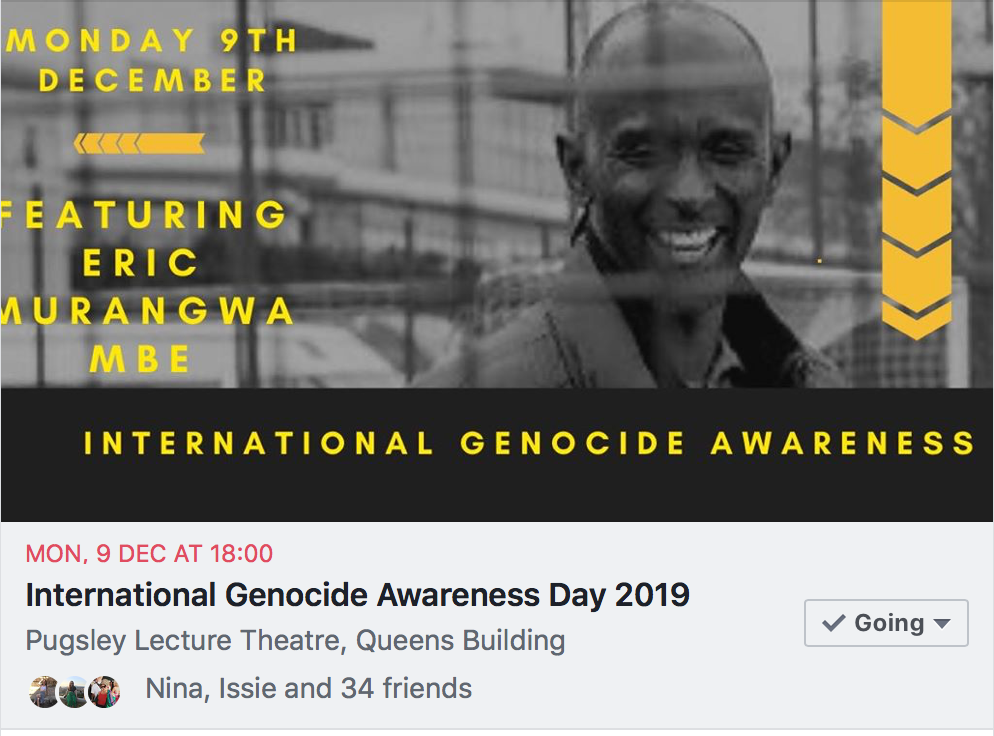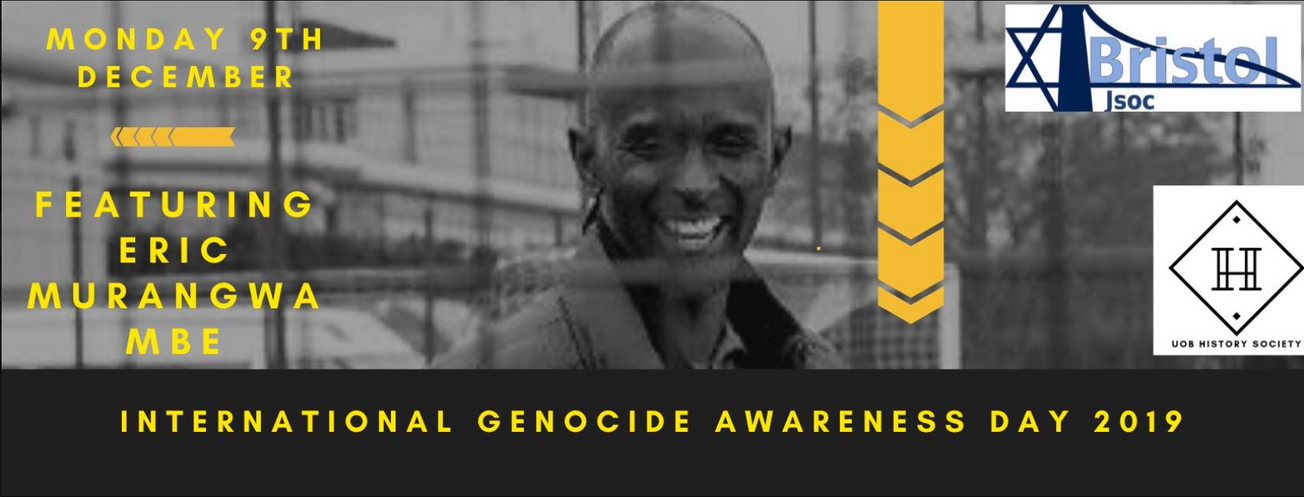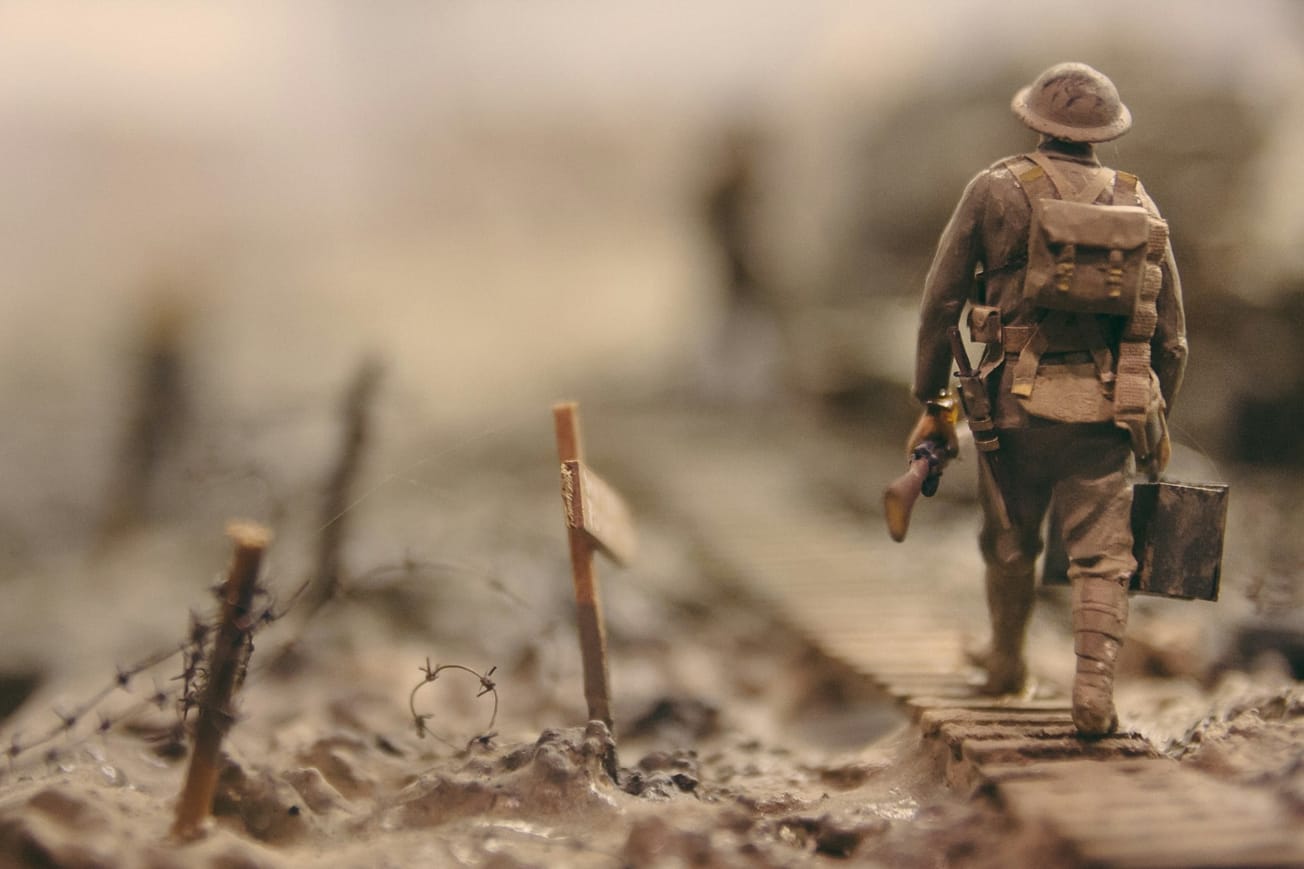By, Isabella Levin, 2nd Year, English
CONTENT WARNING: This article contains explicit references to rape and sexual abuse.
Monday 9th December 2019 marks the 71st International Genocide Awareness andPrevention Day. It is not coincidental that it shares it’s date with the anniversary of the adoption of the 1948 Convention on the Prevention and Punishment of the Crime of Genocide (the “Genocide Convention”).
Students at The University of Bristol live an extremely privileged existence. Our lives are predominantly safe and comfortable. While we engage in charitable events and aim to fight for what we believe in, on occasion somethings can just feel too far away, or too long in the past, and are thus not in our remit to care about.
Yet it is this privilege which puts us in the ultimate position to urge a mass revelation towards the largely untold and unknown atrocities of the past. In pursuit of such, we must recognise the devastating consequences of crimes against humanities, and in this case: genocidal rape.
Until recently (like a lot of us) I had little knowledge of not only the existence of International Genocide Awareness Day. Please take a couple of minutes out of your day to read these messages in hope of remembering&understanding tbe overlooked tragedies of the past #Genocide70 https://t.co/pAiMZ3H7TP
— Issie (@IssieLevin) December 9, 2018
The strategic use of rape in mass warfare has an unsettlingly long history. Yet, it is only now we see the sharing of people’s testimonies, and the acknowledgement of long-standing effects.
The Rape of Nanking in 1937, The Holocaust, The violence around the Partition ofIndia, The Bangladesh Liberation War, The Yugoslav Wars, The Genocide Against The Tutsi, The Iraqi Civil War and the ongoing Rohingya genocide in Myanmar arejust a selection of the examples cited as conflicts in which mass rape in warfare has taken place.
As scholar Sherrie L. Russell Brown states: ‘This is not rape out of control. This is rape under control.’
Within 100 days in 1994, an estimated 800,000 people were murdered while 250,000 women were raped in The Genocide Against The Tutsi. It is believed that between 10,000-20,000 babies were born as a result. These babies are now young people living in Rwanda today. They are now a similar age to us. They do not necessarily share in our comfort. They don’t just feel the brunt of these untold stories, they live them.
There is a multiplex of reasons as to why rape is used tactically in warfare. Terror inflicted on victims forces targeted groups to flee from their homes. Shame subsequently stops them returning, and forces splits, preventing universal cohesion within groups.
We must recognise the devastating consequences of crimes against humanities, and in this case: genocidal rape.
In Rwanda specifically, rape was used to impose slow and painful death through infection. The Hutus released hundreds of AIDS patients from hospitals in order to aid the formation of ‘rape squads’. These groups were purposefully designed to spoil the health and lives of hundreds of thousands. During and immediately following the genocide, a decimated health system led to disastrous consequences for those infected.
To say we must learn from the past does not seem adequate enough. A 2014 study highlighted that 53% of people in The UK cannot even name a single genocide since The Holocaust.

While we in Bristol may see it as facing a huge uphill struggle to illuminate the distant and silenced, we have an opportunity to break from our bubble and learn a little bit more. On Monday 9th December Eric Murangwa MBE, a survivor of the Genocide Against The Tutsi and founder of The Ishami Foundation, will be hosted by Bristol JSoc and The History Society. A link to this event can be found here.
This is an event for all faiths, beliefs and identities to come together not just in harmony, but in education. Mass rape is just one crime against humanity. Whether it be through attending an event, or through personal engagement and research, I urge you all, to take a few moments out of your day, to take a stand and take active measures towards your own education.
Are you going to the genocide awarness event in bristol this year?









